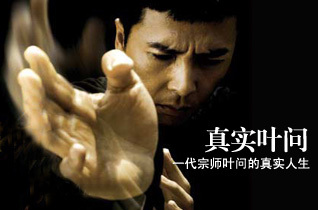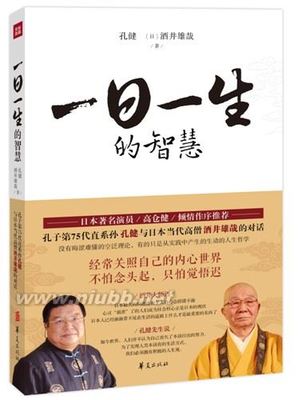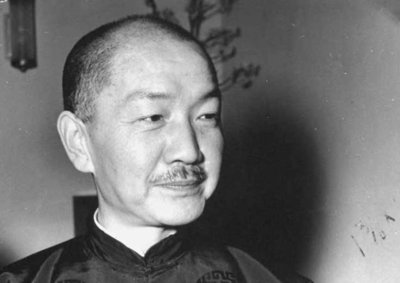Remarks With Japanese ForeignMinister Fumio Kishida After Their Meeting
Remarks
Hillary Rodham Clinton
Secretary of State
Benjamin Franklin Room
Washington, DC
January 18, 2013
SECRETARY CLINTON: Good afternoon,everyone, and welcome to the Ben Franklin Room here in the StateDepartment. And of course, let me warmly welcome the ForeignMinister here for the first time in this new capacity on behalf ofthe new Government of Japan.
Before we start, I’d like to say a few words about the situationin Algeria. The United States extends our condolences to all thefamilies who have lost loved ones in this brutal assault, and weremain deeply concerned about those who remain in danger. I spokewith the Algerian Prime Minister again this morning to get anupdate on this very difficult situation and to underscore, again,that the utmost care must be taken to preserve innocent life. Weare staying in close touch with our Algerian partners and workingwith affected nations around the world to end this crisis.
More broadly, however, it is absolutely essential that webroaden and deepen our counterterrorism cooperation going forwardwith Algeria and all countries of the region. I made clear to thePrime Minister that we stand ready to further enhance thecounterterrorism support that we already provide. We have beendiscussing this with the Algerian leadership both when I traveledto Algeria this past year in October specifically to discusscounterterrorism issues, and again when Deputy Secretary Burnsvisited as the head of an interagency delegation in November. Asthe Foreign Minister and I discussed, we must all remain vigilantin our efforts to combat violent extremism and terrorism around theworld.
Now, when I became Secretary of State nearly four years ago, Ibroke with tradition and took my first overseas trip not to Europebut to Asia, because I recognized that America needed to reengagein the region where much of the history of the 21st century isbeing and will be written. And there was no question as to whichcountry I would visit first on that trip. It was Japan. As I saidwhen I arrived in Tokyo, our alliance with Japan remains thecornerstone of American engagement in the region.
After four years and many more trips across the Pacific, ourcountries enjoy unprecedented collaboration. We address regionalissues from North Korea to those in ASEAN, we meet globalchallenges together from Afghanistan to Iran, and we worked torespond to the earthquake and tsunami. Our people have stood sideby side, and we have strengthened this alliance which has enduredfor more than six decades.
So as my time as Secretary of State comes to an end, I want tothank the people and leaders of Japan for their partnership andcommitment to this alliance. And I want to thank you, ForeignMinister, for a final opportunity to discuss our many sharedconcerns. And we had a broad-based, comprehensive discussion. Westarted down the list and kept going.
On North Korea we shared our joint commitment to strong actionin the UN Security Council. I also assured the Foreign Ministerthat we would continue to support Japan’s efforts to returnJapanese citizens who have been abducted by the DPRK. With regard to regional security,I reiterated longstanding American policy on the Senkaku Islandsand our treaty obligations. As I’ve said many times before,although the United States does not take a position on the ultimatesovereignty of the islands, we acknowledge they are under theadministration of Japan and we oppose any unilateral actions thatwould seek to undermine Japanese administration and we urge allparties to take steps to prevent incidents and manage disagreementsthrough peaceful means.
We also discussed how we can do more to strengthen our alreadystrong alliance. We discussed base realignment issues. We both wantto reduce the impact of our bases on host communities whilemaintaining the ability to defend Japan’s territory and people andpreserve stability and security. We are confident that we can makeprogress on force realignment in Okinawa, including moving aheadwith construction of the Futenma replacement facility.
We also discussed the Trans-Pacific Partnership and we sharedperspectives on Japan’s possible participation, because we thinkthis holds out great economic opportunities to all participatingnations.
We also covered an issue important to both of our nations’people, the Hague Abduction Convention that allows parents to seeka lawful, timely, and just resolution when a child is abducted bythe other parent. And we hope that there will be action in theupcoming session of the Diet to pass the necessary legislation.
Now, I am very pleased to announce that we have extended aninvitation to Prime Minister Abe to come to Washington to meet withPresident Obama in the third week of February. And there will be alot of work to do between now and then to ensure that thishigh-level summit is extremely successful for both of ourgovernments and our nations. But again, Foreign Minister, thank youfor making this very early trip here and for your continuingcommitment to our alliance.
FOREIGN MINISTER KISHIDA: (Viainterpreter.) Secretary Clinton, thank you for those words. If Imay, allow me to make a few comments. Upon the kind invitation fromSecretary Clinton, I have come here on my first visit to the UnitedStates after the change of government had taken place in Japan. Atthe outset, I would like to touch upon the abduction incident thatoccurred in Algeria, the hostage-taking of foreign nationals inAlgeria.
First of all, prior to my meeting with Secretary Clinton,because of the arrangements kindly made by the security,intelligence brief was given to me on this incident. Upon receivingthat briefing, I embarked upon the bilateral meeting, and on thatoccasion I told Secretary Clinton that first of all, Japan takesthe position that terrorism is definitely intolerable andimpermissible and explained the position of the Japanese Governmentthat the Government of Japan has been requesting the Government ofAlgeria to place utmost priority on ensuring the safety of thelives of the hostages.
We have been conducting collection of information and theSecretary and I agreed that the Japan and the United States willcontinue to collaborate in all areas, including informationcollection. We expect that we will continue to seek the cooperationof the United States in various areas pertaining to this incident.Having been able to directly discuss the issue with the Secretaryto confirm that our positions are aligned was extremelyvaluable.
And in the meeting, we mainly discussed the foreign policy ofthe Abe Administration. I explained the foreign policy and securitypolicies to Secretary Clinton and conducted candid exchange ofviews on the direction of strengthening the Japan-U.S.alliance.
While the security environment is becoming ever more challengingin the Asia Pacific, in order to ensure regional peace andstability, the Government of Japan recognizes that close Japan-U.S.cooperation in all areas is indispensible. The new governmentpositions the strengthening of the bond of the Japan-U.S. allianceas the cornerstone of our foreign policy. In light of such view, wewelcome the strategy of the United States of placing focus on theAsia Pacific. Secretary Clinton and I confirmed the necessity forJapan and the United States to cooperate closely to ensure peaceand stability in the region.
Further, as was already mentioned by Secretary Clinton, wereceived the invitation for Prime Minister Abe to visit the UnitedStates during the third week of February. We truly hope that at theJapan-U.S. summit will clearly manifest the importance of an evenstronger Japan-U.S. relations and we confirmed the necessity toaccelerate preparations on both sides of the Pacific.
On the security front, Japan is prepared to fulfill ourresponsibility along with the United States for the peace andstability of the Asia Pacific. While reinforcing Japan’s owndefense capabilities, in order to further upgrade deterrentspresented by the Japan-U.S. security regime, we shall promote theJapan-U.S. security and defense cooperation in wide-ranging areas,and I have conveyed this strong determination of Japan to SecretaryClinton.
On the realignment of U.S. forces in Japan, the new Japaneseadministration intends to follow the currently existing Japan-U.S.agreement and maintain deterrents while at the same time reducingthe impact on Okinawa. Both Japan and the United States willexpedite the work to come up with a plan for consolidation offacilities and areas in Okinawa. Such fundamental concept was alsoexplained by our side to Secretary Clinton.
And on the economic front, Secretary Clinton and I confirmed theimportance of promotion of free trade and investment andcooperation in such areas as energy. On TPP, I explained the viewof the new government and the debate ongoing currently in Japan andconfirmed with the Secretary that we will maintain close contact onthis matter.
Further, on the situation in theAsia-Pacific region, first of all, with regards to China, theJapan-Sino relationship is one of the most important bilateralrelationships for our nation. The Abe Administration intends torespond from a broad perspective towards promotion of mutuallybeneficial relationship based on common strategic interest toChina, and I conveyed that policy of Japan to theSecretary.
Further, while Japan will not concede andwill uphold our fundamental position that the Senkaku Islands arean inherent territory of Japan, we intend to respond calmly so asnot to provoke China. I conveyed to Secretary Clinton that Japanvery much values the commitment shown by the United States over theSenkaku Islands based on the Japan-U.S. Security Treaty and thecommitment that the United States will go against any unilateralaction that will infringe upon the administration rights ofJapan.
As for Japan’s ties with the ROK are concerned, I indicated ourdetermination to further deepen our relationship with South Korea,taking the opportunity of birth of new governments in both Japanand South Korea.
On North Korea, we confirmed that close collaboration becontinued between Japan and the United States, as well as betweenJapan, United States, and South Korea. Specifically referring tothe missile launch last December, we agreed to continue with ourclose cooperation so that the United Nations Security Council takeseffective measures as expeditiously as possible.
Further, I explained to the Secretary how seriously the newadministration is taking with the abduction issue, and soughtcontinued understanding and cooperation by the United States.Secretary Clinton responded by saying that the United Statessupports the resolution of the abduction problem.
Syria, Iran and other global challenges were raised at thetable, and we confirmed the necessity to continue closecollaboration on these issues as well.
Thank you for your kind attention.
MS. NULAND: We’ll take two questions today. We’ll start withCNN. Jill Dougherty, please.
QUESTION: Madam Secretary, thank you. We know that there areU.S. citizens being held hostage in Algeria. Is there anything thatyou can please tell us more specifically about their condition,their status? How confident are you that you can get them out?
And there’s significant criticism coming from thisAdministration and from others, the Europeans, about what some arereferring to as a pretty brutal operation. You had no advancenotice of that operation either before it started, as far as weunderstand. Should Algeria have accepted military help from theUnited States to carry out this mission?
SECRETARY CLINTON: Well, Jill, whenI spoke with the Prime Minister again this morning, I urged theutmost care be taken in the protection of the hostages, Algerianand expatriate foreign hostages. He made clear that their operationwas still ongoing, that the situation remained fluid, that thehostages remain in danger in a number of instances. But in interestof their security, I am not going to provide any further details atthis time.
As I said yesterday and at the beginning here today, this is anextremely difficult and dangerous situation. No one knows betterthan Algeria how ruthless these groups are. After all, they foughta very terrible war against them for a number of years, with greatloss of life. So we are staying in close touch with our Algerianpartners and working with affected nations like our Japanesefriends around the world to help end this crisis.
But let’s not forget this is an act of terror. The perpetratorsare the terrorists. They are the ones who have assaulted thisfacility, have taken hostage Algerians and others from around theworld who were going about their daily business. And it isabsolutely essential that while we work to resolve this particularterrible situation, we continue to broaden and deepen ourcounterterrorism cooperation, something that the Foreign Ministerand I discussed at some length. It is not only cooperation withAlgeria, it is international cooperation against a commonthreat.
And that’s one of the reasons why I went to Algeria in October,why we have been working with a number of the countries in thatregion to help them improve their counterterrorism capabilities.It’s why I launched the Global Counterterrorism Forum. We will notrest until we do as much as we can, alone and in concert with ourpartners, to restore security to this vital region and to bringthose who would terrorize and kill innocent people to justice.
So we are going to follow this very closely and we are going todo everything we can, working with our partners, to help resolveit. And then when finally we have brought that to a conclusion,working with others, we have to look to see what more needs to bedone in order to protect everyone from these ongoing threats fromthese very dangerous extremists.
MS. NULAND: Last one today, from (inaudible) Matsumura fromYomiuri Shimbun, please.
QUESTION: (Via interpreter.) I have a question to Secretary andMinistry. China is becoming ever more active in Senkaku Islands andthe surrounding area. The missile launch by DPRK also manifests theever more challenging situation and security environment in theregion. In order to enhance the alliance between Japan and theUnited States, how do you intend to overcome the pending issuesbetween the two countries, such as Futenma relocation, The Haguetreaty, and TPP? And how do you intend to utilize the gains fromthis foreign ministerial meeting to the future of these two – therelationship between the two countries?
FOREIGN MINISTER KISHIDA: (Viainterpreter) Then if I may take the floor, first of all, first andforemost, the security environment in the Asia Pacific region isbecoming ever more challenging and difficult, and in order toensure the peace and stability of the region, we not only need toclosen ties in the areas of economy and security, but in all areassuch as culture and people-to-people exchange to reinforceJapan-U.S. alliance.
On the security front, it is necessary that we further upliftthe level of deterrence under the Japan-U.S. security regime. Wewill coordinate with the strategy of the United States, placingfocus on the Asia Pacific to further enhance cooperation in thisarea.
On the economic front, both Japan and the United States placeimportance on promotion of free trade as well as cooperation in thearea of energy. And today, I was able to confirm the importance ofthese points with Madam Secretary. On TPP, I have utilized thisopportunity to communicate to Secretary Clinton the views be heldby the new administration. We confirmed that Japan and the UnitedStates will continue to keeping close contact as we tackle thisissue.
Further, on the security front, if I may add one other pointrelated to security, on Futenma, Futenma should never become apermanent base. So under the policy of maintaining deterrence whileat the same time reducing the impact on Okinawa, we will worktogether towards the realignment of U.S. forces in Japan, basedupon such policy.
Further, the following point was confirmed with Madam Clinton,and the signing of the Hague Convention is of great importance. TheGovernment of Japan is intending to go through the necessaryprocedures for early signing of the treaty. By taking steady stepstowards the implementation of these measures shall lead to furtherreinforcement of the Japan-U.S. relationship, and that, in turn, Ibelieve, will lead to the stability and prosperity of the totalityof the Asia-Pacific region.
On the occasion of the Prime Minister’s visit to the UnitedStates, we truly hope that his visits will be extremely productivein covering all of these areas, and Japan and the United Stateswill continue to closely collaborate.
Thank you.
SECRETARYCLINTON: Well, I will echo what the Minister saidabout the very extensive agenda that we will be working on toprepare for the summit meeting between the two leaders. There areso many issues of bilateral, regional, and global importance wherethe United States and Japan work together, cooperate, and we willhave a full review of all of those important matters.
As I saidat the outset, we certainly discussed the Senkaku Islands today.And I reiterated, as I have to our Chinese friends, that we want tosee China and Japan resolve this matter peacefully throughdialogue, and we applaud the early steps taken by Prime MinisterAbe’s government to reach out and begin discussions. We want to seethe new leaders, both in Japan and in China, get off to a goodstart with each other in the interest of the security of the entireregion.
And wehave also, as I said earlier, made clear that we do not want to seeany action taken by anyone that could raise tensions or result inmiscalculations that would undermine the peace, security, andeconomic growth in this region. So certainly, we are hopeful thatthere can be an ongoing consultation that will lower tensions,prevent escalation, and permit China and Japan to discuss the rangeof other issues on which they have importantconcerns.
Thank you all very much.
MS. NULAND: Thank you all.
PRN: 2013/0044
美国国务卿克林顿与日本外相与记者见面会文字记录稿链接:
http://www.state.gov/secretary/rm/2013/01/203050.htm
 爱华网
爱华网


